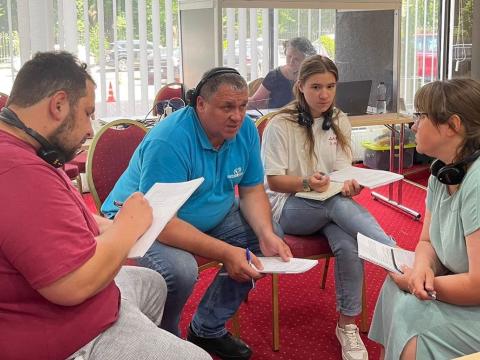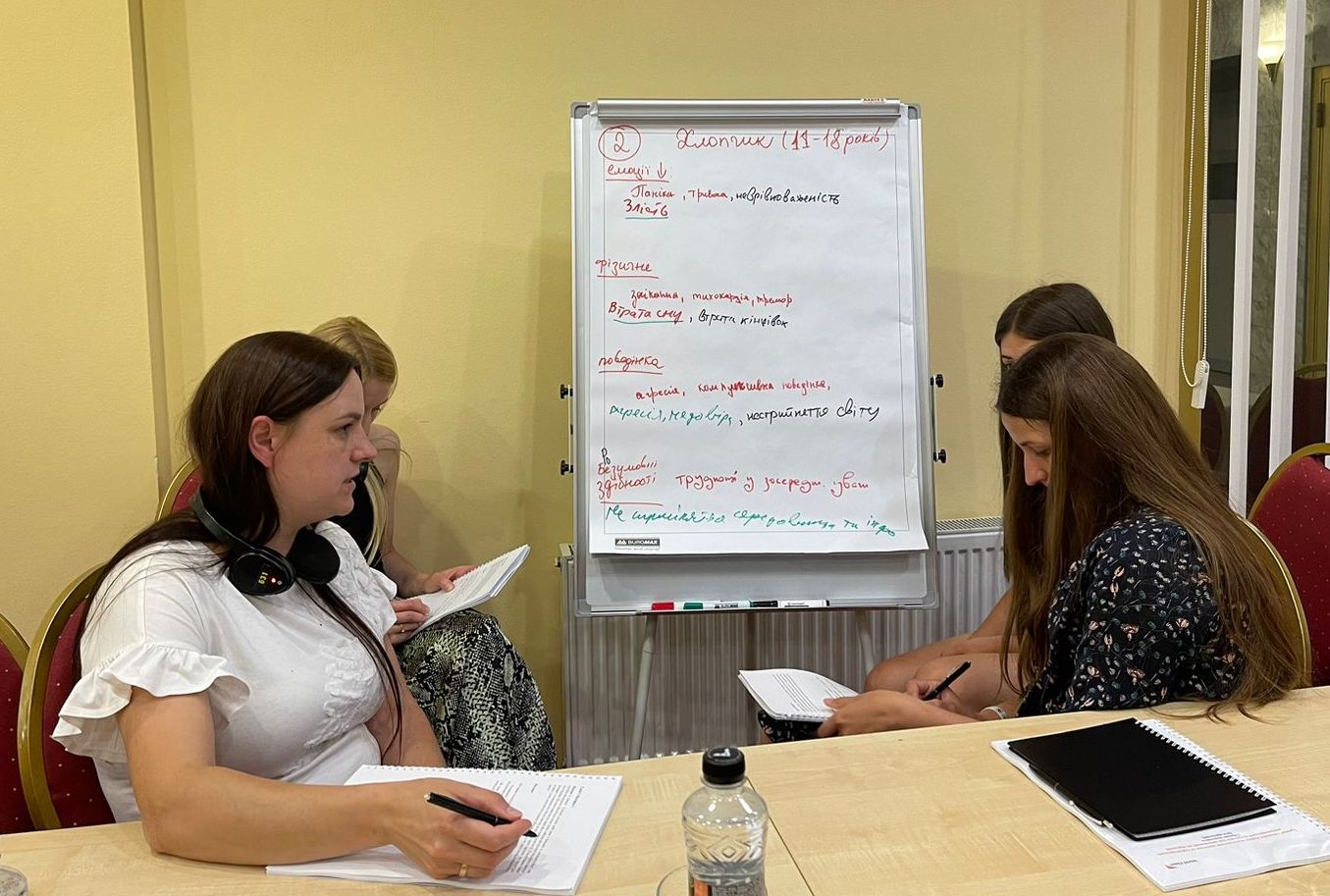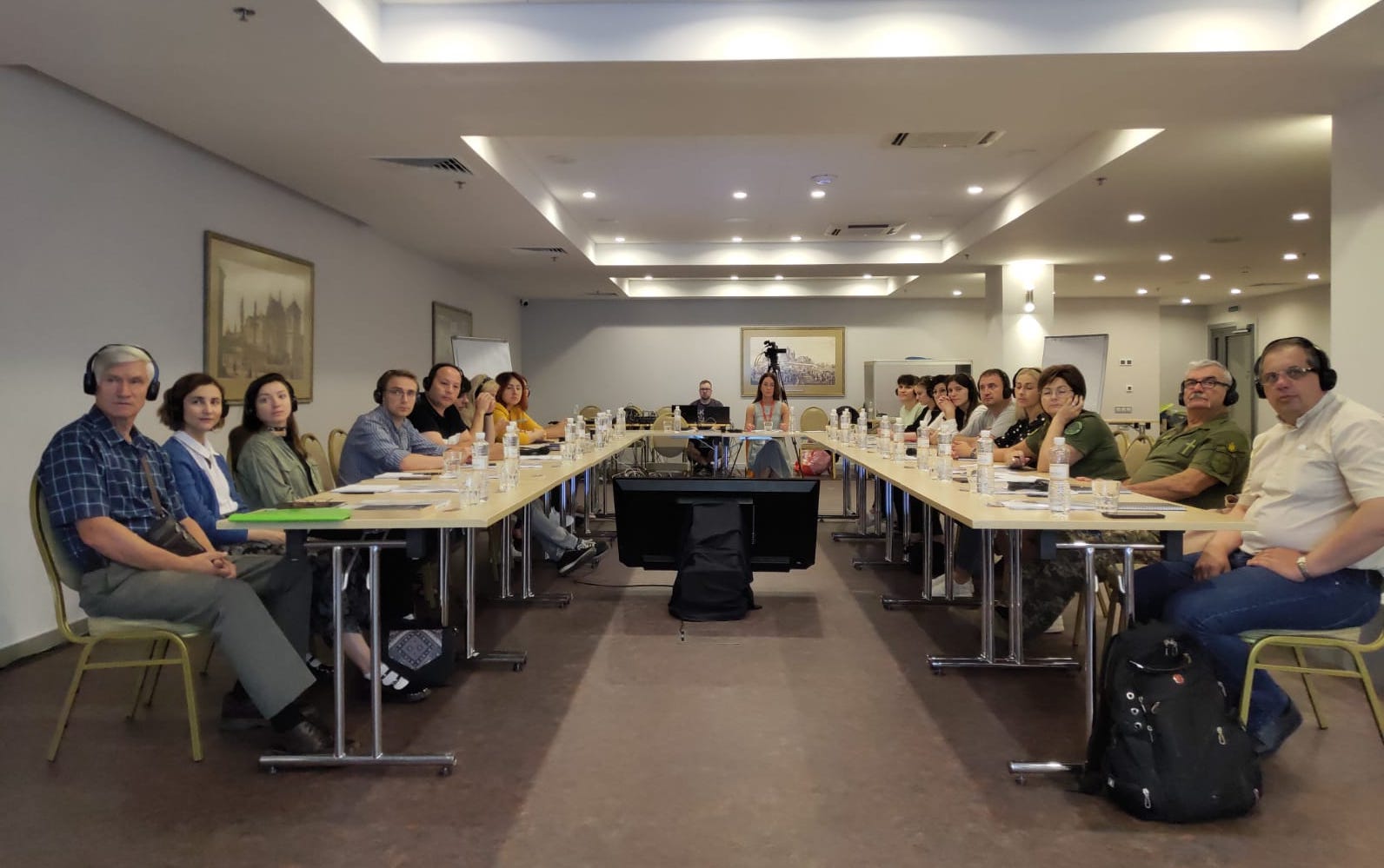Faith leaders and frontline responders in Ukraine join training on psychosocial support and psychological first aid

Lviv, Ukraine - Thirty-seven World Vision partners working in churches and faith-based organizations have recently joined the four-day training in psychological first aid and mental health psychosocial support (MHPSS).
The partners are also tasked to share the knowledge from the training with other colleagues to help Ukrainian children and families impacted by the crisis to overcome adversity, recover, and strengthen their resilience.
Key findings from a recent World Vision Child Protection Multi Sectoral Needs Assessment revealed key findings that call for MHPSS interventions in 3 oblasts namely Dnipro, Kharkiv and Kherson.

The findings include safety, security, and family separation as the main areas of concern. In addition, the continuous stress, anxiety, movement restrictions and shift to an online or distance learning modality significantly limited the social lives of children.
The initiative is supported by USAID’s Bureau of Humanitarian Assistance (BHA), ACTED Ukraine and the Ukraine Response Consortium through the project Addressing the Immediate Multi-Sectoral Humanitarian Needs of IDPs and Conflict-Affected Populations Inside Ukraine.
“The faith leaders have access to the communities, and are respected by the people, hence are effective to support World Vision in reaching out to children and families, and ensure this urgent need is addressed”, says Blerina Lako, Chief of Party for the project.
The faith leaders have access to the communities, and are respected by the people, hence are effective to support World Vision in reaching out to children and families, and ensure this urgent need is addressed.
Through a series of courses based on a contextualized curriculum, at least 400 faith leaders and frontline responders will be equipped with basic skills to provide faith-based psychosocial support to children affected by the war in Ukraine.
The participants will experience a deeper insight into their own suffering but will have the tools, skills, and knowledge to address the pain and move towards healing and recovery.

They will then be in a better position to support children. The foundation for all the courses is relationships, reinforcing deep values, principles, and skills to build respectful relationships with children and others.
Lako adds, “Our goal is that despite the challenges and the restrictions, we are doing our best to respond to the needs of the children. This is urgent and by enjoining key groups like the faith leaders, we can make it happen even in difficult circumstances.”
All people working for World Vision, or visiting its programmes are obliged to sign its Child and Adult Safeguard Policy and Behaviour Protocols. This policy aims to create a child-safe organizational environment and is based on the principles of the UN CRC and its protocols.

Check World Vision's Child and Adult Safeguarding Protocols and The Role of Faith
By Cecil Laguardia, Communications Director I Photos by Ukraine Response Team